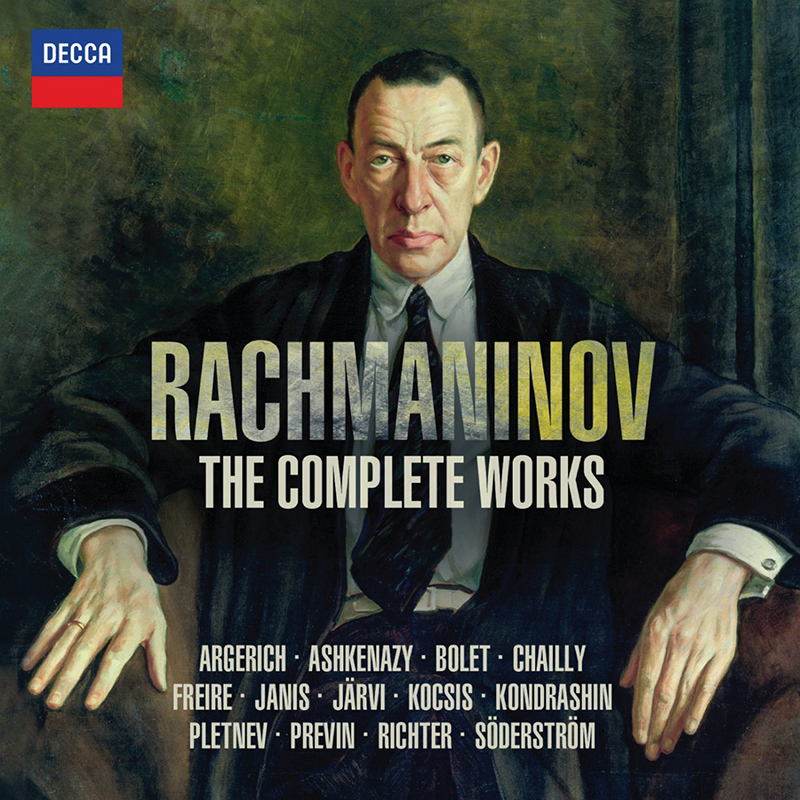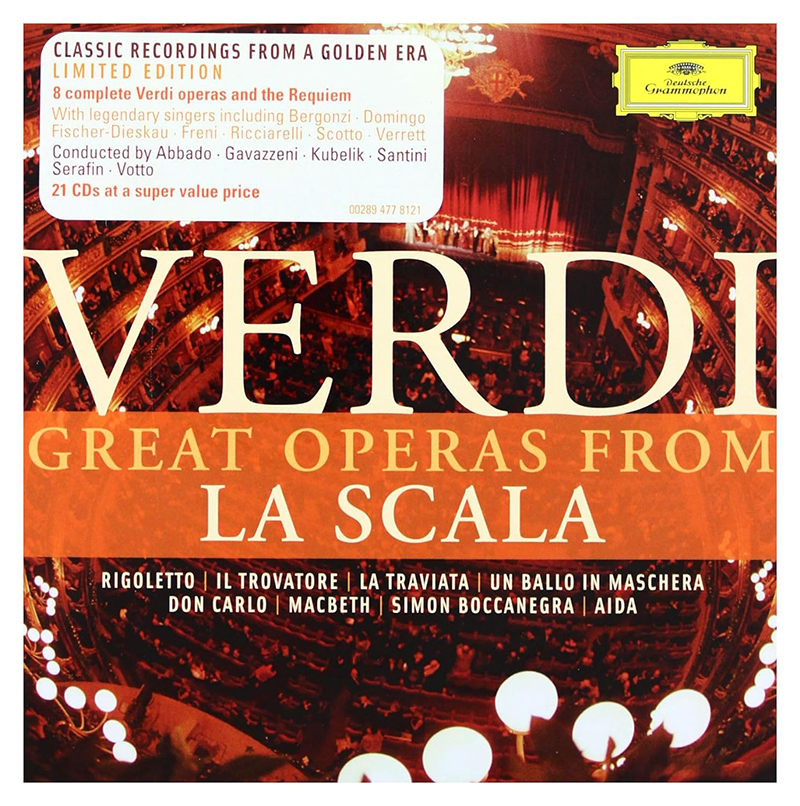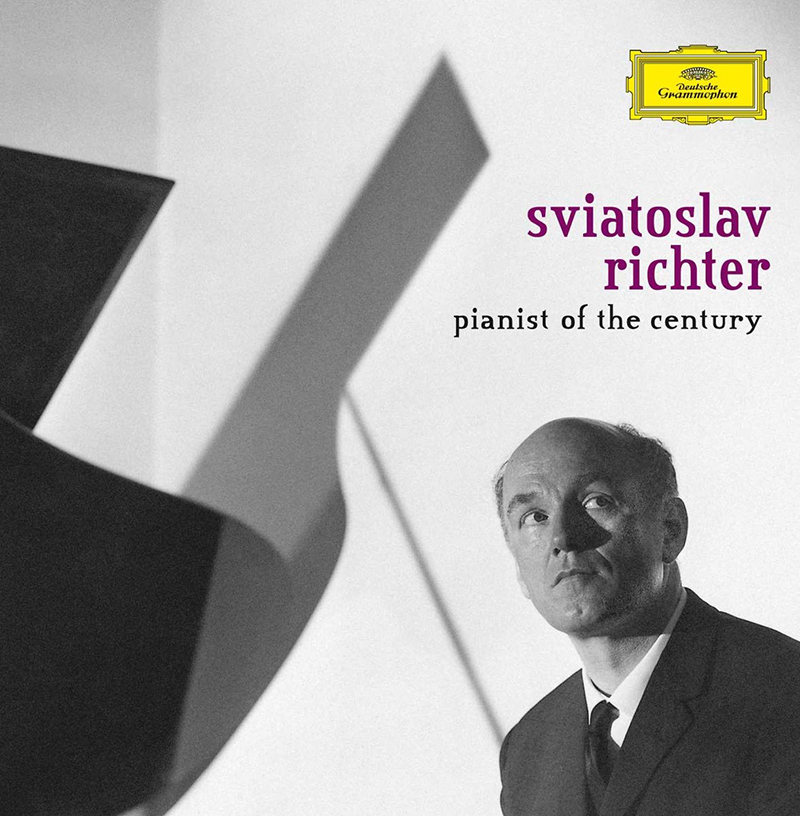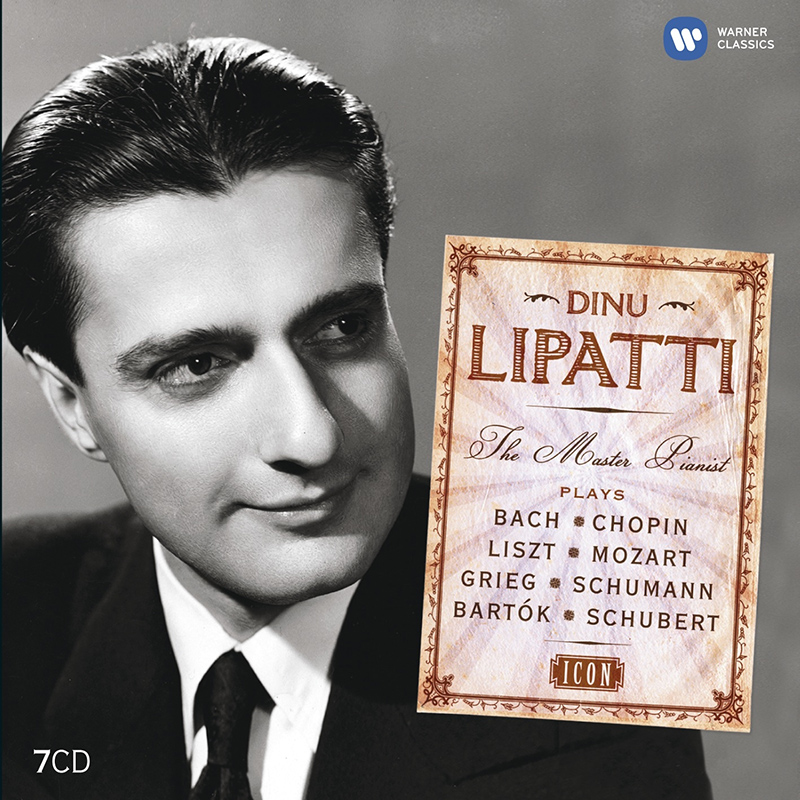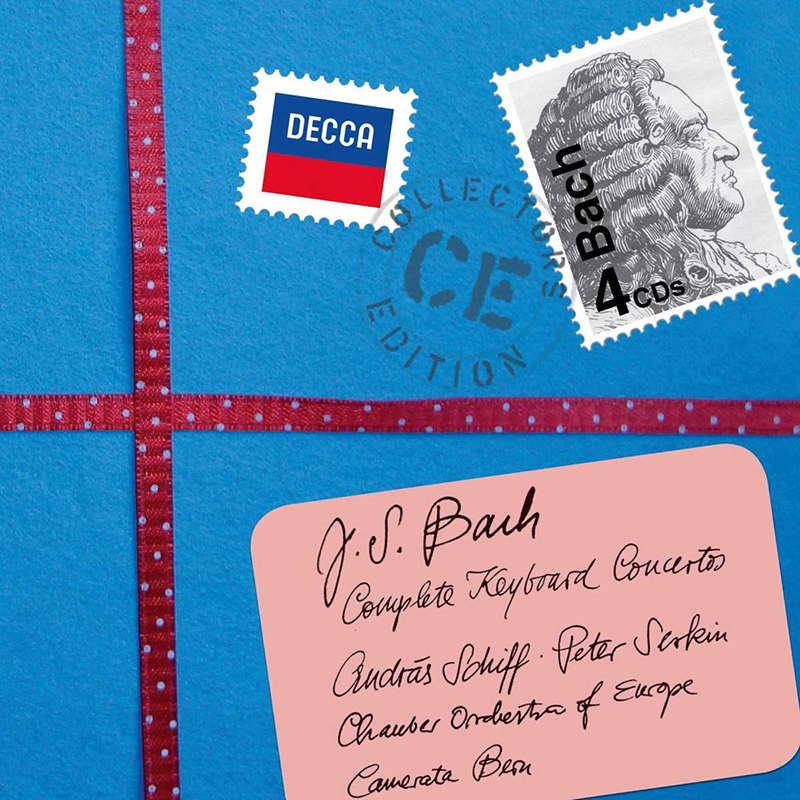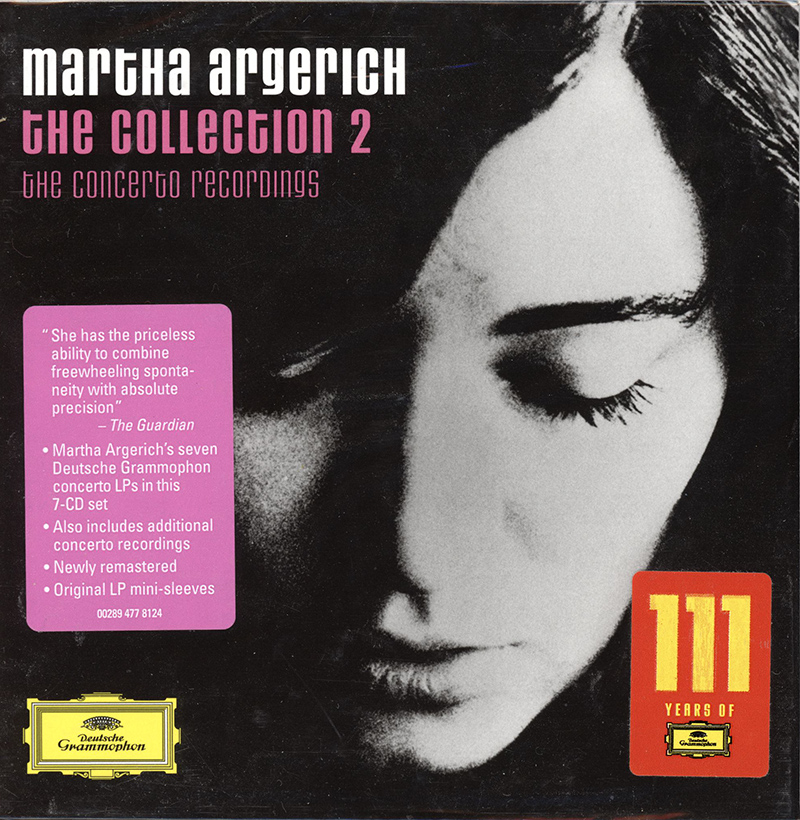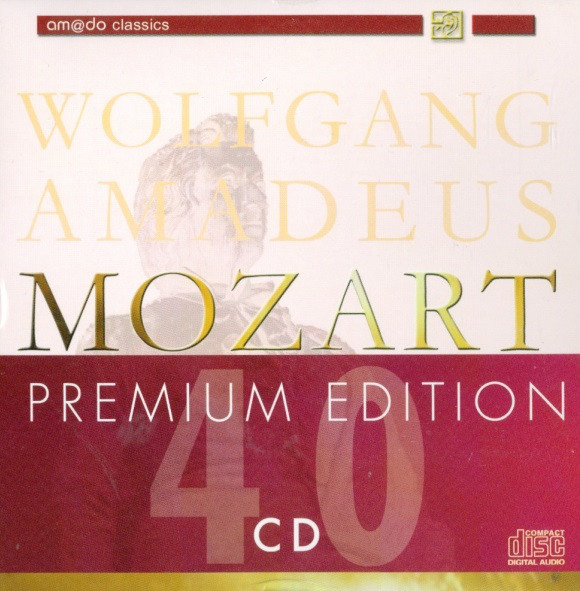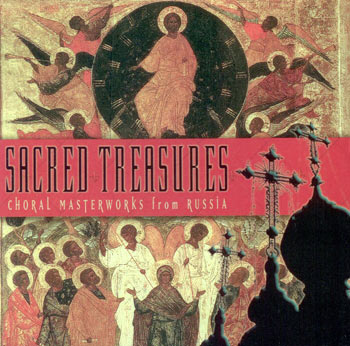Logowanie
KOLEKCJE!
BACH, CHOPIN, LISZT, MOZART, GRIEG, Dinu Lipatti, Otto Ackermann, Ernest Ansermet
The Master Pianist
PROKOFIEV, CHOPIN, TCHAIKOVSKY, SCHUMANN, BEETHOVEN, Martha Argerich, Claudio Abbado, Giuseppe Sinopoli
The Concerto Recordings
The Collection 2
Jakość LABORATORYJNA!
ORFF, Gundula Janowitz, Gerhard Stolze, Dietrich-Fischer Dieskau, Deutsche Oper Berlin, Eugen Jochum
Carmina Burana
ESOTERIC - NUMER JEDEN W ŚWIECIE AUDIOFILII I MELOMANÓW - SACD HYBR
Winylowy niezbędnik
ClearAudio
Essence MC
kumulacja zoptymalizowana: najlepsze z najważniejszych i najważniejsze z najlepszych cech przetworników Clearaudio
Direct-To-Disc
PIAZZOLLA, ChamberJam Europe
Tangos del Ángel y del Diablo
Direct-to-Disc ( D2D ) - Numbered Limited Edition
RACHMANINOV, TCHAIKOVSKY
Russian Choral Works
- Choral Russian Masterworks - Sacred Treasures
- 01. Russian Cathedral Bells (0:22) >>> MP3 <<<
- 02. Great Ektenia / S. Rachmaninov (3:48) >>> MP3 <<<
- 03. Hymn of Praise / S. Rachmaninov (3:04) >>> MP3 <<<
- 04. Hymn of the Cherubim (Excerpt) / S. Rachmaninov (4:43) >>> MP3 <<<
- 05. Hymn of the Cherubim (Excerpt) / D. Bortniansky (4:02) >>> MP3 <<<
- 06. Our Father / N. Kedrov Sr. (3:57) >>> MP3 <<<
- 07. Fervent Supplication (Excerpt) / S. Rachmaninov (3:50) >>> MP3 <<<
- 08. The Nobel Joseph / P. Turchaninov (arr.) (2:39)
- 09. Amen. And with Thy Spirit / P. Tchaikovsky (1:20)
- 10. Monastic Vespers (Excerpt) / P. Baer OSB (dir.) (1:29)
- 11. Bless the Lord, O My Soul / S. Rachmaninov (5:13)
- 12. Hymn of the Cherubim (Excerpt) (2) / P. Tchaikovsky (7:41)
- 13. Hymn of the Cherubim (Excerpt) (2) (2) / D. Christov (6:41)
- 14. Our Father (2) / P. Tchaikovsky (3:34)
- 15. I Have Chosen the Blissful / A. Gretchaninov (4:52)
- 16. Hymn of the Cherubim / G. Lvovski (5:00)
- 17. Final Bells (0:40)
- RACHMANINOV
- TCHAIKOVSKY
>>> Większa okładka A <<< Sung by the finest Russian and Bulgarian choirs, this extraordinary collection of transcendent prayers and hymns highlights a timeless Russian tradition of faith and devotion. For sheer beauty, there is little to match it anywhere in the world. The solemn ecstasy in the music of the Russian Orthodox Church can trace its roots back to the earliest days of Christian worship, via the great Byzantine Empire of the Near East. It presents an uncompromising search for peaks and depths of expressive fervor, aloof from all gimmicks. That was true of the music's multi-cultural roots as monastic chant, and was maintained as it evolved into full choral harmony in the late Romantic period. This survey of Orthodox music is not intended to be historically inclusive. Nor is it programmed to fit Russian liturgical services. What is offered is a selection extracted from the liturgical music of the 19th and early 20th centuries and focusing on the world of angelic inner quiet. Much of what you hear sounds suspended in mid-air. Tempos are broad, and rhythmic features never much apparent. The music seems to levitate, floating effortlessly from piece to piece while showing very little sense of urgency. These scores seek nothing beyond a beautiful existence. Like true faith, it simply is. In that sense, there is something akin to the emotions experienced while hearing modern ambient music. One of the first things you will likely notice in this collection is the number of versions of the traditional angelic hymn, here translated as Hymn of the Cherubim. Both the titles and sonic vistas of this music reflect the high respect which angels hold in Orthodox Church thought. In the Eastern Church, angels occupy a place similar to the importance of the saints in Western Christianity - only slightly higher. Angels, after all, have been Gods, warriors and messengers as well as attendants. They have been pictured in Orthodox iconography as neither male nor female, but immortals of tremendous power. Orthodox angels are enormous, mysterious creatures, able to intercede for us. They are non judgmental, neither scowling in disapproval nor smiling benignly. They stand for perfect tranquility and neutrality, existing in that calm certainty aspired to but rarely attained by human beings, not even saints. The music of the Eastern Orthodox Church is thus literally and emotionally tied to the effort to create the music of the angelic host. It is music designed not to trouble the mind, but rather to act as a medium between God and man. Of course, no one can say what angels sound like. But in their effort to hint at an art free from ego, Russian composers have often achieved an art form which comes close to the ideals of the music of the spheres. It's a music of transport to a world beyond care. One has only to consider the power in these settings of well-known prayers such as The Lord's Prayer (Our Father) or Great Ektenia (Lord Have Mercy, or in the Latin Mass, Kyrie Eleison). Historically, the old Eastern Roman Empire became known as Byzantium after the fall of Rome in A.D. 476. With Constantinople (modern Istanbul) as its capital, Byzantine music drew on all surrounding cultures Armenian, Egyptian, Greek, Hebrew, Syrian and Ukrainian. Thus the early religious music of the Orthodox (or Byzantine) Church reflected many influences of the regions cultures. For a thousand years, the music was single-line chant, sung exclusively by male singers. They had a full notation system before the West, and some of these ancient manuscripts still survive. All this began to evolve little by little, as Western trained composers such as Glinka insisted on reintroducing modal melody, supported by Romantic harmonies, but in a simple and direct fashion free of complex embellishments. Throughout its history, however, Russian Church music has maintained its tradition as a purely human medium. No machines were allowedthat is, no instruments. It is pure music for unaccompanied human voices. Church bells large and small are employed for processionals, to call the congregation or escort them back into the outside world. But the music remains purely vocal. [Although you can hear the percussive tinkling of the swinging censers (incense pots) during the excerpt sung by the Belgian monks of the Chevetogne Monastery on track 10.] That purely vocal tradition was even observed by composers such as Tchaikovsky and Rachmaninoff. Neither was notably devout, yet neither gave way to their normal inclination toward lavish display when setting the Orthodox liturgy. Both as great musicians, and as members of the Russian culture, they grasped the perfection of the medium as it existed. Its power transcends even its original function for religious services. It is in that spirit that this tapestry of Orthodox classics has been woven together. The intent of producer ELLEN HOLMES was to garner outstanding examples of a great art form onto one disc, not as liturgy, but as a meaningful listening experience. Weaving the set was a labor of love for all involved, intended as a secular act of respect for some of the most beautiful music the world has produced. Concept, music selection, sequence and track notes: ELLEN HOLMES
